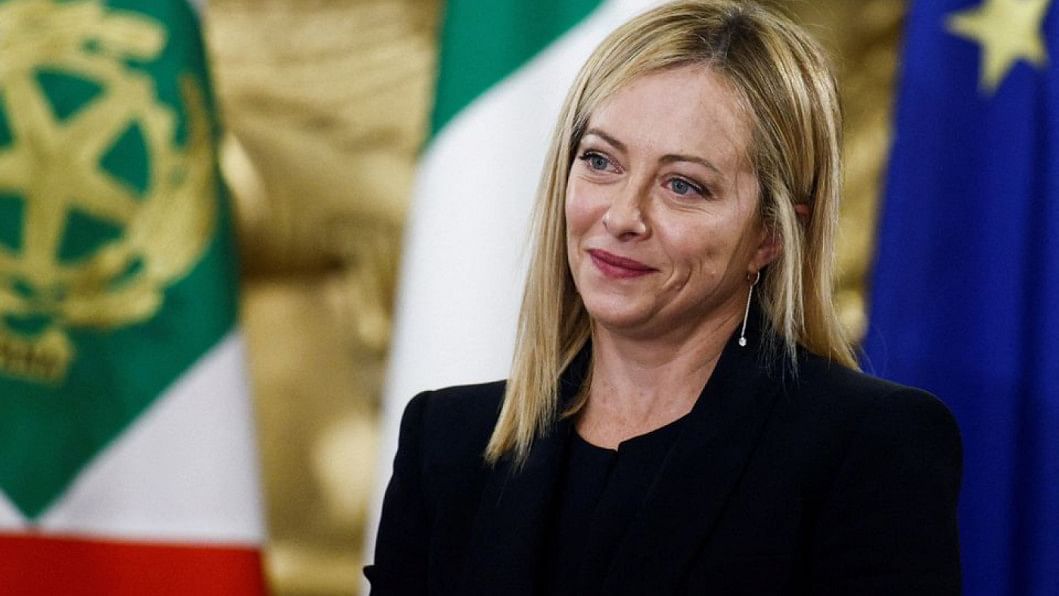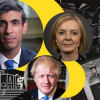Why we should be concerned about Italy’s right-wing PM

Klaus Meine, the lead singer of Scorpions, a rock band formed in erstwhile West Germany, wrote the famous lyrics of "Wind of Change" after the band visited Soviet Union during perestroika – a time of liberalisation and reform. Soon after, the Berlin Wall fell and ushered in the end of the Cold War. It was, for many, the best of times.
A month ago, I stood on the Piazza Del Duomo in Milan. The breathtaking grandeur of the great Cathedral, built over six centuries, and the cacophony of a thousand voices, could not drown out the sense of despondency. It was election day and Italy had just elected its most right-wing party to power since WWII. For Europe, there was a discernible change in its political climes and like many, I feared the worst.
Under ordinary circumstances, the achievements of Giorgia Meloni as Italy's first female Prime Minister elect would have been a cause for celebration, but Meloni is no feminist icon. She leads a party called Brothers of Italy, a descendant of the neo-fascist party Movimento Sociale Italiano (MSI), formed in 1946. Meloni denies being a fascist but as a 15-year-old joined the Youth Front – a wing of the MSI.
However, the party's logo, a tri-coloured flame, was once used by the now defunct MSI. She once described Mussolini as "the best politician of the last 50 years", and one of her recently-appointed junior ministers was photographed wearing a Nazi swastika armband in 2005. Two of Mussolini's grandchildren stood in elections under her party's neo-fascist banners. Another party member was later expelled for Facebook posts praising Hitler as a "great statesman" and calling Meloni a "modern fascist".
Yet, there is a propensity for the hard left to use the loaded term "fascist" far too easily. Despite her contemptible rhetoric, mooted regressive policies curbing women's and LGBTQ rights, and dogwhistle racism targeting migrants, many of whom are Bangladeshis, Meloni is no Mussolini. Her ideology may be populist, nationalist, Eurosceptic and attractive to neo-fascists, but it does not have the martial violence or mass mobilisation associated with fascism. In that sense, her politics resembles the modern-day Republican party and Trumpism.
Italy never went through the German equivalent of "denazification" and had an ambivalent attitude towards its troubled fascist past. It's current rightward drift can be traced back to Silvio Berlusconi's administration, who often trivialised the crimes of the Mussolini era, rehabilitated fringe elements by forming electoral pacts with the far-right, and even appointed known fascists to cabinet posts.

Meloni herself was a rising star in Berlusconi's Forza Italy party, but she showed political astuteness by leaving and positioning herself as the prominent opposition – an alternate to the more established parties. Throughout her campaign, she prudently adopted an Atlanticist, anti-Russian, anti-Chinese stance. This pacified Washington and Brussels concerns over international and economic policies. However, closer inspection of her rhetoric and actions shows considerable divergence. While she favoured supporting Ukraine militarily, she was also opposed to EU sanctions on Russia after its annexation of Crimea, and in her 2021 book wrote Putin's Russia "defends European values and Christian identity".
Such double standards are the hallmark of the new far-right in Europe. Hungary has Victor Orban. In France, Marine Le Pen continues to see her vote share increase. In Sweden, the ethno-nationalist Sweden Democrats now have the second largest grouping in parliament. In Spain, the far-right Vox party is gaining political clout.
The new far-right presents itself as more "palatable" than the bygone era. There is no ostentatious show of power through rallies or marches in black shirts. Insignias have been changed, like the Sweden Democrats' shift from a flaming torch to a yellow and blue flower. Ethno-nationalism has been subsumed into national conservatism, giving the impression it's innocuous, deradicalised even. It's bullish in foreign policy, orthodox in economic matters, stokes the embers of nationalistic fervour, fights culture wars and dehumanises the vulnerable. It presents itself as the new face of social conservatism and pacifies international concerns by saying the right things. All the while, the tentacles of autocratic tendencies spread nationally, ravaging civil liberties.
The old right-wingers, like Victor Orban, simply do not care. The European Parliament now considers Hungary as a "hybrid regime of electoral autocracy". Orban openly makes racist statements, claiming countries where European and non-European people mingle are "no longer nations". His control over Hungary is near total and his rise to power can be inextricably linked to his inflammatory anti-immigration stance. The inexorable rise of the once diminished far-right elements all over Europe in the past decade is a result of weaponising concerns over immigration.
Sometime over the past decade, a fringe conspiracy theory, "the great replacement", went mainstream. There are different variants of it, but in essence the theory espouses (without a rational basis) that immigration leads to large demographic changes, undermining white majorities – its proponents call it "genocide by substitution". Right wing media outlets like the US' Fox Network is culpable in giving credence to the theory, with network host Tucker Carlson mentioning it as many as 400 times on air. But mostly, such a theory gets amplified in the echo chambers of social media, pushed by algorithms. Several white supremacists have used the theory as motivation for carrying out terrorist attacks in Norway, Pittsburgh, Texas, Quebec and Christchurch. The targets are minorities – Muslims, Jews or Blacks.
The theory has become a rallying cry for the far-right. Instead of focussing on racial hierarchy, the discourse is on "cultural power", thus it does not appear as overtly racist at first glance. Orban positions himself as fighting the "great population exchange". French presidential candidate Eric Zemmour propagates it in his books La Suicide Frances (The French Suicide) and Destin Frances (French Destiny). Meloni herself tweets unfounded allegations of crimes committed by asylum seekers and her party has mooted a constitutional ban on "apologia for communism and Islamic extremism", a law used by Orban in Hungary to target his progressive critics. During UK's Brexit referendum, debates centred around a false narrative over immigration concerns.
In times of economic strife, nations lurch rightwards. Voter apathy was evident with the lowest turnout in Italy's history. Similarly, in Sweden, the right-wing coalition won only a narrow majority of three out of 349 seats. The left has failed to deliver a vision for its historic base, and in many cases are engaged in bitter in-fighting. The centre right parties have also failed with economic strategies that have only widened income disparity. Meanwhile, the far-right has capitalised on resentment and hyper-simplified a singular strategy –demonisation of a vulnerable minority. This has paid electoral dividends. Once in power, they are free to attack the edifice of liberal values, strengthening their hold by sowing divisions.
Left unchecked, in the wake of an energy and cost of living crisis, and a war in continental Europe, the far-right will be resurgent again. The last time it ushered in the darkest hour of European history. We must heed the winds of change – it threatens all.
Bahzad Joarder is an associate tutor at University of Warwick, UK.

 For all latest news, follow The Daily Star's Google News channel.
For all latest news, follow The Daily Star's Google News channel. 







Comments